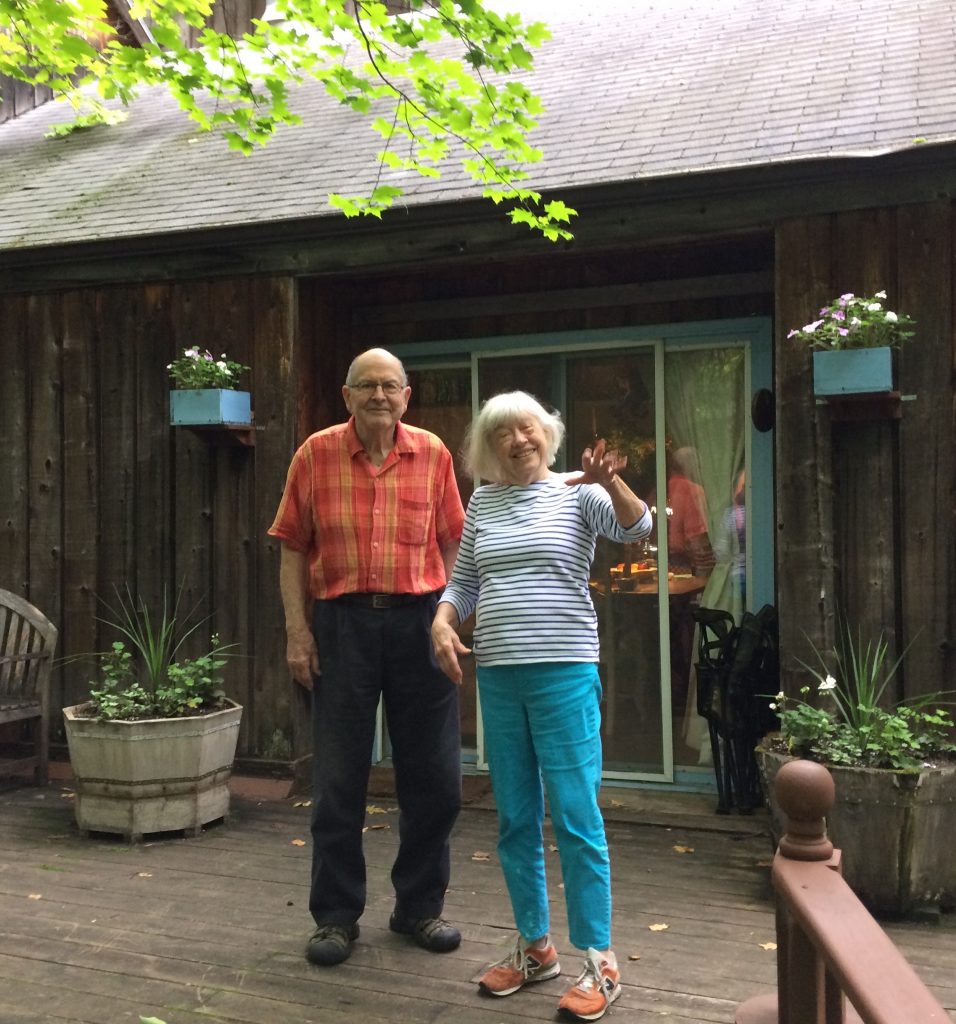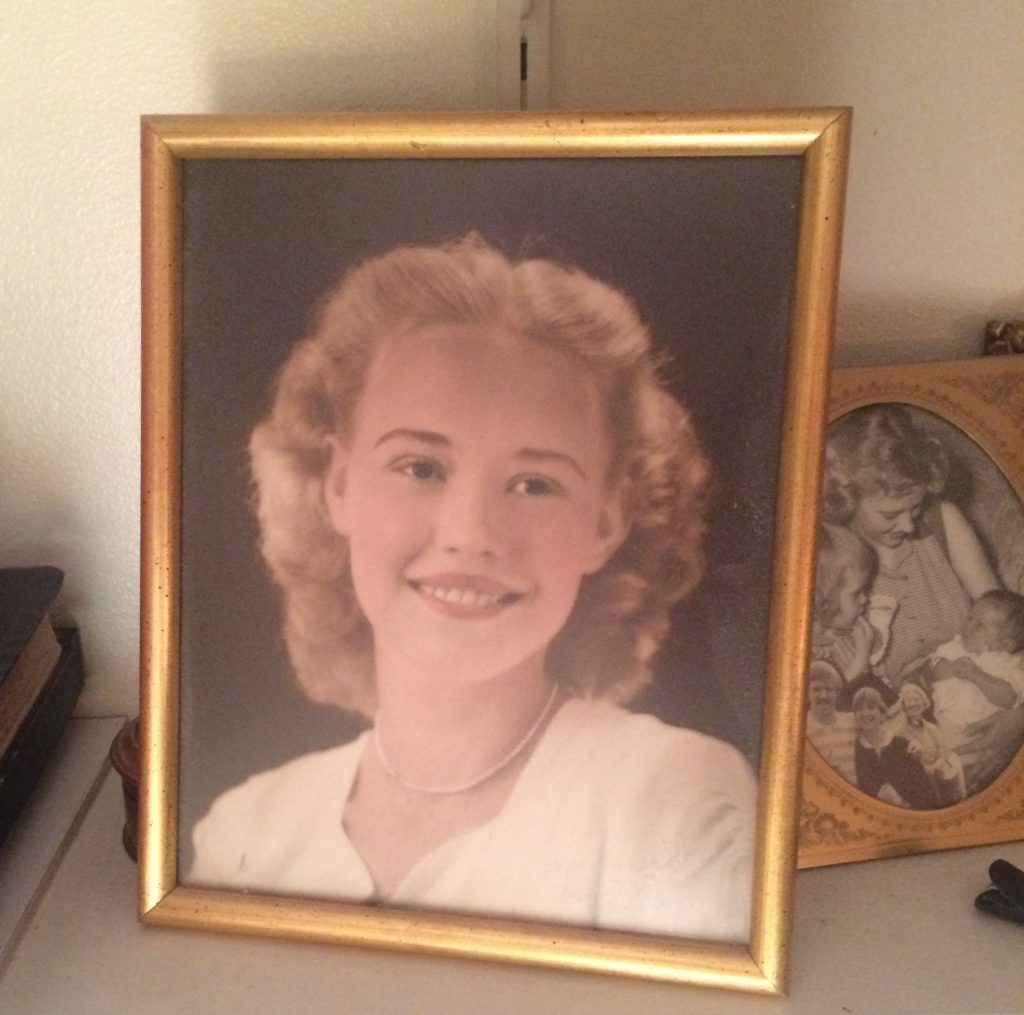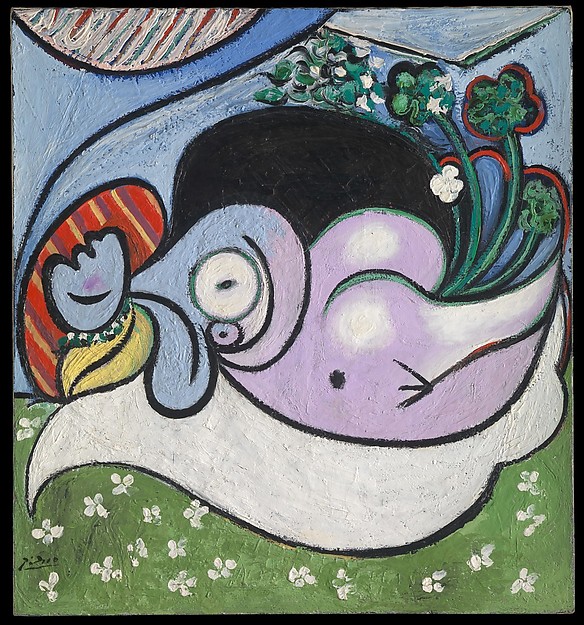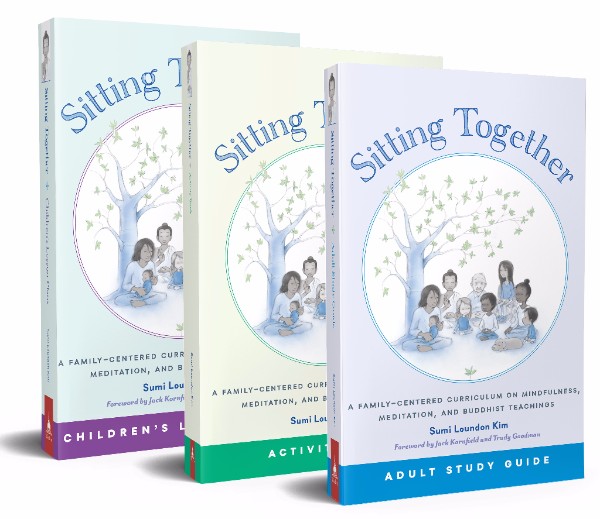So As Not To Miss Out
While I was in Wisconsin helping my parents, several of my dharma friends were sitting the retreat at IMS that Akincano (along with Christina Feldman) taught right before the course on Vedana. So as not to miss out, while I was driving (for 12 hours!) from Wisconsin back to St. Louis, I listen to all the talks from that retreat on Dharmaseed (here).
There was lots of great stuff in those talks. But one tiny little thing (seemingly) that Christina said — almost as an aside — during the final 10 minutes of the last talk of the retreat, has really stuck with me, maybe more than anything else.
She said: “My intention this year — I often have a sort of overriding intention that I use as an investigation — is to have nobody in my life that I’m indifferent towards.
“I find this really startling, in terms of metta. I get on the train or I pass people on the street….or the person at the cash register in the supermarket, the person at the gas station, the people in the hotels who look after us, in the restaurants… It’s so easy to see people in terms of their functions, isn’t it. As if they’re somehow not really worthy of the attention we would give to someone we love, or someone we struggle with. I’ve found this quite a startling practice. Suddenly I seem to live in a much friendlier world!
“This is not about inflicting metta on people. [laugher] It’s not about ‘you’re going to get my metta whether you like it or not. Here it comes!’
“It’s about seeing. It’s about noticing. It’s about what happens in those moments when we offer a glance of tenderness and respect where our gaze falls. Whether we offer an acknowledgment. Whether we offer a smile.
“You know, I have so many subway journeys in London now where I feel like I’m surrounded by friends!“
***
I thought about what she said when I was a Walgreen’s yesterday. The whole place feels really tacky and aggressively “marketing-y” to me, so I tend to avoid eye contact with the cashier when I’m checking out (maybe because I’m embarrassed about shopping there, or embarrassed for them that they have to work there, or guilty maybe because they have to work there and I don’t?!?). But I remembered what Christina said and I looked up and made a point of thanking the cashier (who was really hustling to get me checked out) and it made a huge difference in how I felt. About the experience. About the woman who was working there. About the world, actually. And about myself.
I’m glad I didn’t miss out.
Not Easy
 I’m back now from Wisconsin, where I was helping my mother — and my father — adjust to my mother’s deteriorating state of dementia, and from Massachusetts, where I was studying the concept of “feeling tone” in Buddhist psychology — and really getting into the Pali texts!
I’m back now from Wisconsin, where I was helping my mother — and my father — adjust to my mother’s deteriorating state of dementia, and from Massachusetts, where I was studying the concept of “feeling tone” in Buddhist psychology — and really getting into the Pali texts!
I have quite a lot to say about both of these experiences, but for now, let me combine the two by quoting the Buddha (from the Numerical Discourses, AN 2.32):
“I tell you, monks, there are two people who are not easy to repay.
“Which two? Your mother and father. Even if you were to carry your mother on one shoulder and your father on the other shoulder for 100 years, and were to look after them by anointing, massaging, bathing, and rubbing their limbs, and they were to defecate and urinate right there [on your shoulders], you would not in that way pay or repay your parents.
“If you were to establish your mother and father in absolute sovereignty over this great earth, abounding in the seven treasures, you would not in that way pay or repay your parents.
“Why is that? Mother and father do much for their children. They care for them, they nourish them, they introduce them to this world.”
Everything Changes
 I’m not sure when I’ll be posting again. Maybe next week. Maybe not.
I’m not sure when I’ll be posting again. Maybe next week. Maybe not.
I’ve just made plans to drive to Wisconsin after the retreat Lila will be leading this weekend because my mom’s dementia has taken a dramatic turn for the worse, and I need to take over from my sister, who’s there with her now, but needs to get back to her job in St. Louis.
It could be that mom is just having a harder time than normal adjusting to the move from St. Louis to Ellison Bay (she and my dad go there every summer). Or it could be something worse. We’ll just have to see.
Whatever it is, it will change. That is for sure.
***
The photo is of my mom that my dad keeps on his desk. I think it’s her high school graduation photo. They got married not long after that. The photo behind the photo is also of my mom, this time holding my little sister, with me looking on. And in the lower corner of that photo, there’s a cut-out from a snapshot of my brother and me, at my college graduation, with my mom in the background looking on.
Everything changes.
Everything.
Dreams and Blessings
 One of my CDL colleagues, Grace, sent this email to our group:
One of my CDL colleagues, Grace, sent this email to our group:
I had a dream last week.
Pauletta was driving a baby blue convertible heading north. She looked beautiful, healthy, and radiant. There were three nuns in the car with her, tucked down and cramped a bit — as it was a small convertible — and she looked at me, smiled beautifully and waved.
It felt like a blessing.
***
Pauletta was one of our fellow Community Dharma Leaders, who died on June 5.
That image of Pauletta, radiant and waving, heading north in a baby blue convertible crammed full of nuns, has stayed with me. Thank you, Grace. Your email, too, was a blessing.
We Had a Language Before We Had Words
I’ve been listening again to talks by Ajahn Sucitto. I do this as often as I can. There’s a quality to what he says that touches me in a way that’s almost impossible for me to express. It’s not his style or his voice. (He has a pretty strong working-class English accent that’s sometimes hard to understand. He tends to mumble a bit. And sometimes it can seem like he’s just kind of rambling.)
But there’s something under his words… some authority…or authenticity…or some other “something”… that every so often just sort of grabs hold of me, really deep at the center, and my mind seems to STOP — almost as if it’s holding its breath so it can really LISTEN in some very deep, maybe even pre-verbal way.
When that happens, sometimes I just have to turn off the tape and be quiet for a while. And sometimes I have to keep going back over it, listening to it again and again. And then, usually, I feel compelled to write it down.
Which is what happened during the last 17 minutes of this talk: Establishing the Ground. Here’s what he said:
We had a language before we had words. A language of the heart. A language of presence. A language of authenticity before we had words…
In meditation we are listening behind the language for what’s being felt. How that’s affecting my mood, my energies, my nervous system. Is there anything in this where I get a sense of…uh huh, uh huh, uh huhhh. [Here he is making the sounds of someone who is listening to someone speak, following what they’re saying, and “getting it.”] That’s truth.
Then something shifts. You feel the shift. You feel the resonance of something, energy shifts and changes…from speedy to steady, from sluggish to awakening, from running around to stasis. There’s a shift.
There is is. That’s truth. You’ve just touched it. And you’ve touched it in your body. It can be difficult to really get that because we’ve lost some of the pathways into that. So sometimes there’s just flashes of it. We get intuitive resonances, where you suddenly feel more settled, more here. Clearer. Grounded.
This is the pathway into that embodied quality that we’ve lost access to. Truth reminds us where we are. Where we are is: here. It’s always present, open available, imperturbable.
Some senses, some intuitions, some things can cause the mind to return. Much of the Buddha’s teaching is a series of wonderful attempts and plays and structures to help that to occur. So it eventually becomes more than just an intuitive flash, but an increasingly strong sense of presence. When you walk, when you sit, when you listen.
Even when you speak.
So much so that it’s said that “the sage, even when they speak, they’re silent.”
Because the speaking is coming from the silence of their presence….
Have you walked in open country? Open country is the openness of your own mind.
***
Click here to listen to the talk.
All That We Live Blind To
In celebration of Tracy K. Smith, our new Poet Laureate!
The Largeness We Can’t See
by Tracy K. Smith
When our laughter skids across the floor
Like beads yanked from some girl’s throat
What waits where the laughter gathers?
And later, when our saw-toothed breaths
Lay us down on a bed of leaves, what feeds
With ceaseless focus on the leaves?
It’s solid, yet permeable, like a mood.
Like God, it has no face. Like lust,
It flickers on without a prick of guilt.
We move in and out of rooms, leaving
Our dust, our voices pooled on sills.
We hurry from door to door in a downpour
Of days. Old trees inch up, their trunks thick
With new rings. All that we see grows
Into the ground. And all we live blind to
Leans its deathless heft to our ears
and sings.
Whole Lotta Wisdom!
 In addition to
In addition to
The Middle-Length Discourses of the Buddha, translated by Bhikkhu Bohdi, and
Kamma and the End of Kamma, by Ajahn Sucitto, and
Mindfulness, by Joseph Goldstein, and
A Path with Heart, by Jack Kornfield, and
Radical Dharma, by angel Kyodo williams and Lama Rod Owens,
I’m also counting as one of my Dharma books:
True Style is What’s Underneath: The Self-Acceptance Revolution, by Elisa Goodkind and Lily Mandelbaum.
Wisdom is wisdom, no matter where it shows up.
Family Practice
 I am delighted to announce the long-awaited publication of Sitting Together: A Family-Centered Curriculum on Mindfulness, Meditation, and Buddhist Teachings, by Sumi Loundon Kim, with foreword by Jack Kornfield and Trudy Goodman.
I am delighted to announce the long-awaited publication of Sitting Together: A Family-Centered Curriculum on Mindfulness, Meditation, and Buddhist Teachings, by Sumi Loundon Kim, with foreword by Jack Kornfield and Trudy Goodman.
This 3-volume set provides a complete curriculum for adults and children to learn and practice together, either in the home, in partnership with other families, or with a local sangha.
The Adult Study Guide (280 pages) offers 36 lesson plans including meditation practices, homework, readings, and reflection questions for group study.
The Children’s Lesson Plans (296 pages), used in conjunction with the Adult Study Guide, provides step-by-step instructions for teachers on meditation exercises, stories, crafts, songs, and games.
The Activity Book (56 pages) expands the educational opportunities for children with coloring pages, puzzles, and other fun activities.
Plus, there’s a companion Mindful Families website with even MORE resource! Want a sneak peek at the book? Check out this pdf preview.
I don’t have kids, but I’ve ordered the set anyway because this is such an important area of practice. I’d be delighted to share it with anyone who’s interested in putting it to use. (Just email me here.)
Learn from the Trees
 Right after the election last fall, Jack Kornfield wrote a beautiful article, Practicing the Dharma in Times of Uncertainty, which begins:
Right after the election last fall, Jack Kornfield wrote a beautiful article, Practicing the Dharma in Times of Uncertainty, which begins:
When times are uncertain, difficult, fearful, full of change,
they become the perfect place to deepen the practice of awakening.
After viewing the elections, whatever your point of view,
Take time to quiet the mind and tend to the heart.
Then go out and look at the sky.
Remember vastness; there are seasons to all things:
gain and loss, praise and blame, expansion and contraction.
Learn from the trees.
Practice equanimity and steadiness.
Remember the timeless Dharma amidst it all…
That line about learning from the trees has stayed with me. I thought about it a lot when I did walking practice in the hills behind Spirit Rock last February and March. And when I watched the hundred-year-old Sycamore trees in my front yard, bending and swaying during all those thunderstorms we had in April.
And also when I read this wonderful new(-ish) book, The Hidden Life of Trees: What They Feel, How They Communicate, by Peter Wohlleben.
Wohlleben writes about the underground social networks of trees discovered in the late 1990s (and since called the “wood wide web”) which “has been mapped, traced, monitored, and coaxed to reveal the beautiful structures and finely adapted languages of the forest network. We have leaned that mother trees recognize and talk with their kin, shaping future generations. In addition, injured trees pass their legacies on to their neighbors, affecting gene regulation, defense chemistry, and resilience in the forest community…
“Peter highlights these ground-breaking discoveries in his engaging narrative The Hidden Life of Trees. He describes the peculiar traits of these gentle, sessile creatures–the braiding of roots, shyness of crowns, wrinkling of tree skin, convergence of stem-rivers–in a manner that elicits an aha! moment with each chapter. His insights give new twists on our own observations, making us think more deeply about the inner workings of trees and forests.” — Dr. Suzanne Simard, Professor of Forest Ecology, University of British Columbia, Vancouver
***
Read this book.
Then go out do what Jack say: Look at the sky. Remember vastness. Learn from the trees.
It Shouldn’t Be, But It Is
 I’m not sure why, but I feel drawn today to post this passage from Parami: Ways to Cross Life’s Floods, by Ajahn Sucitto:
I’m not sure why, but I feel drawn today to post this passage from Parami: Ways to Cross Life’s Floods, by Ajahn Sucitto:
“The Buddha famously declared patience to be the supreme purification practice. He was playing on the Vedic term ‘tapas,’ which signifies the taking on of an austerity or ascetic practice such as fasting or mortifying the body in order to cleanse the mind of passions and attachments. But the Buddha pointed not to physical asceticism — which he frequently spoke against — but of the restraint of holding the heart still in the presence of its suffering until it lets go of the ways in which it creates that suffering….
“Patience is not a numbing resignation to the difficulties of life; it doesn’t mean that suffering is all right. It doesn’t mean shrugging things off and not looking to improve our behavior. Nor does it mean putting up with something until it goes away.
“The practice of patience means bearing with dukkah [suffering] without the expectation that it will go away. In its perfection, patience means giving up any kind of deadline, so the mind is serene and equanimous. But if the patience isn’t pure yet (and it takes time to develop patience!), the mind still feels pushy or defensive.
“Impure patience is the attitude: ‘Just hold on and eventually things will get better; I’ll get my own way in the end if I’m patient enough.’ This approach can temporarily block or blunt the edge of suffering, but it doesn’t deal with the resistance or the desire that is suffering’s root.
“Pure patience is the kind of acceptance that acknowledges the presence of something without adding anything to it or covering it up. It is supported by the insight that when one’s mind stops fidgeting, whining and blaming, then suffering can be understood. It is this suffering that stirs up hatred and greed and despair, and it is through practicing the Dhamma, or Way, of liberation that its energy and emotional current can be stopped. Reactivity isn’t the truth of the mind; it’s a conditioned reflex, and it’s not self. Because of that, suffering can be undone, and when it is, the mind is free….
“One year, I decided to not allow my mind to complain about anyone or anything. I was at Amaravati then, which was busy and there was a large community of people of many nationalities, with different languages and from different cultures. So in the general confusion and dysfunction of it all, my longing for simplicity and stability was sorely challenged, and I could get quite irritable. I kept most of it to myself, but still my mind was discontented. Hence the resolution…
“So instead I had to watch the irritation. Just putting up with it didn’t really take me across. I could put up with things and become a patronizing old grump who puts up with things.
“But instead, as the practice of patience deepened, it took me to that point in the mind where I could feel the chafing, the tension, the disappointment — and the wanting to get away from it. At the point, where there was no excuse and no alternative, there was also no condemnation. After all, no one like suffering. And we’re all in this together — wanting peace and harmony, but disappointing and irritating each other nonetheless….
“And from there, my mind began to open into love and compassion for all of us. It shouldn’t be like this, but it is — and we have to support each other. I could realize, ‘There’s nothing wrong with them. They’re my patience teachers, they’re helping me to cross over the flood by getting me to jettison my demands, impatience and narrow-mindedness.’…
“This is the perfection of patience: it can make one’s life a vehicle for blessing.”



